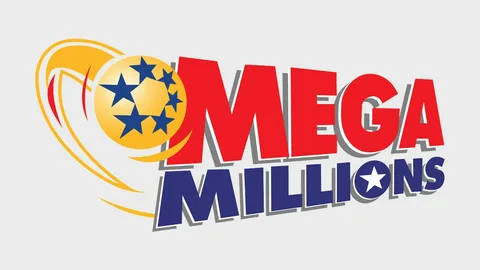What is Mega Millions?
Mega Millions is a multi-state lottery game that is played in 45 states, the District of Columbia, and the U.S. Virgin Islands. It is one of the two largest lottery games in the United States, alongside Powerball. Mega Millions is coordinated by a non-profit organization called the Multi-State Lottery Association (MUSL).
To play Mega Millions, players must select five numbers from 1 to 70 and one Mega Ball number from 1 to 25. Drawings are held twice a week, on Tuesdays and Fridays at 11 p.m. ET. The minimum jackpot starts at $20 million and continues to grow until someone wins by matching all six numbers.
In addition to the jackpot prize, there are eight other prize tiers ranging from $2 for matching the Mega Ball to $1 million for matching all five white ball numbers. The odds of winning the jackpot are 1 in 302,575,350, making it an extremely difficult feat.
Jackpot Analysis
The Mega Millions jackpot starts at $20 million and grows with each rollover until someone wins the grand prize. The jackpot amount is determined by a fixed percentage of ticket sales revenue from participating lottery jurisdictions. Typically, around 35% of ticket sales go into the jackpot pool, with the remainder covering administrative costs, retailer commissions, and funding for various state programs.
Several factors influence the size of the Mega Millions jackpot. Firstly, the number of participating states and jurisdictions plays a significant role. As more states join the game, the potential pool of ticket buyers increases, leading to higher sales and larger jackpots. Additionally, the jackpot amount directly correlates with the number of rollovers or consecutive drawings without a grand prize winner. Each time the jackpot rolls over, it grows exponentially, attracting more players and further boosting sales.
While the odds of winning the Mega Millions jackpot are extremely low, standing at approximately 1 in 302.6 million, the potential for a life-changing payout continues to captivate players. The probability of winning remains constant regardless of the jackpot size or number of tickets sold. However, as the jackpot grows, more people tend to participate, increasing the overall number of potential winning combinations in play.
Biggest Jackpots in History
The Mega Millions lottery has produced some of the largest jackpots in the history of lotteries worldwide. Here are some of the record-breaking Mega Millions jackpots:
$1.537 Billion (October 2018) – This staggering jackpot was won by a single ticket sold in South Carolina. The winner chose to remain anonymous, as permitted by state law. The massive prize generated a frenzy of ticket sales, with people across the country hoping to become an instant billionaire.
$1.05 Billion (January 2021) – This jackpot was won by four tickets sold in Michigan, Florida, Maryland, and New York. The winners chose to split the prize, each receiving around $262 million before taxes. The jackpot’s growth was fueled by a streak of 36 consecutive drawings without a grand prize winner.
$656 Million (March 2012) – This jackpot was split between three winning tickets sold in Illinois, Kansas, and Maryland. Each winner received a lump sum of around $158 million before taxes. The winners’ identities were not publicly disclosed.
$648 Million (December 2013) – This jackpot was split between two winning tickets, one sold in California and the other in Georgia. The California winner, Steve Tran, chose to take the lump sum of $347.6 million before taxes. The Georgia winner, Ira Curry, also took the lump sum option.
These record-breaking jackpots have had a significant economic impact, generating massive lottery sales and tax revenues for participating states. The winners’ stories have also captured public imagination, with some choosing to remain anonymous while others have gone public with their newfound wealth.
Jackpot Rollover and Growth
The Mega Millions jackpot starts at $20 million and continues to grow every time the jackpot is not won. This growth is fueled by the rollover mechanism, where a portion of the ticket sales revenue from each drawing is added to the jackpot prize pool when there are no winners.
The jackpot rollover rate is determined by a fixed percentage of ticket sales, typically around 35%. This means that if ticket sales for a particular drawing reach $100 million, approximately $35 million would be added to the existing jackpot amount, causing it to roll over and increase for the next drawing.
As the jackpot grows larger, it tends to attract more players, leading to higher ticket sales and even faster growth. This snowball effect can quickly propel the jackpot into record-breaking territory, generating immense public interest and media attention.
Lottery Playing Trends
Lottery playing trends are heavily influenced by the size of the jackpot on offer. As the Mega Millions jackpot grows larger, ticket sales tend to skyrocket. This phenomenon is known as “jackpot fever” or “lotto mania,” where people become more inclined to purchase tickets when the potential payout reaches staggering amounts.
Historically, Mega Millions has seen a significant surge in ticket sales whenever the jackpot surpasses the $500 million mark. During these periods, lines at lottery retailers can stretch for blocks, and online ticket sales experience a massive influx of traffic. The allure of becoming an instant multi-millionaire is simply too tempting for many to resist.
Player demographics also shift as jackpots grow larger. While regular lottery players tend to be from lower-income brackets, high-value jackpots attract a more diverse range of players from various socioeconomic backgrounds. Even those who rarely or never play the lottery may be enticed to purchase a ticket when the potential winnings reach astronomical levels.
The impact of jackpot size on sales is undeniable. Mega Millions officials have reported that ticket sales can increase by up to 50% or more when the jackpot reaches record-breaking levels. This surge in sales not only generates more revenue for the lottery but also increases the likelihood of multiple winners, as more people participate in the draw.
Taxes on Mega Millions Winnings
Winning the Mega Millions jackpot is a life-changing event, but it also comes with a significant tax burden. The amount of taxes owed on a Mega Millions prize depends on several factors, including the payout option chosen (lump sum or annuity), the winner’s tax bracket, and the state where the ticket was purchased.
Federal Taxes
At the federal level, Mega Millions winnings are subject to a 25% withholding tax. This means that if you choose the lump sum option, 25% of the advertised jackpot amount will be withheld before you receive your prize. For example, if the jackpot is $500 million, and you take the lump sum, you would receive approximately $375 million after the 25% federal withholding tax is deducted.
However, the 25% withholding tax is just an estimate. Mega Millions winnings are treated as ordinary income, which means you’ll have to report the full amount on your federal tax return and pay taxes based on your overall income and tax bracket. Depending on your tax situation, you may owe more or less than the 25% withheld.
State Taxes
In addition to federal taxes, many states also impose taxes on lottery winnings. The state tax rates vary widely, with some states not taxing lottery winnings at all, while others have rates as high as 8.82%. If you purchased your winning ticket in a state that taxes lottery winnings, you’ll need to factor in those additional taxes when calculating your net prize amount.
Tax Planning for Winners
Given the significant tax implications of a Mega Millions jackpot, it’s crucial for winners to seek professional tax advice and develop a comprehensive tax planning strategy. This may involve setting up trusts, charitable donations, or other strategies to minimize the tax burden and protect their winnings. Proper tax planning can help ensure that winners are able to enjoy their newfound wealth while meeting their tax obligations responsibly.
Lottery Odds and Probability
The odds of winning the Mega Millions jackpot are astronomically low, sitting at 1 in 302,575,350 for the latest format. To put that into perspective, you’re more likely to be struck by lightning (1 in 1,000,000) or become a movie star (1 in 1,190,000) than win the jackpot. While the massive prize pool is enticing, it’s crucial to understand the probability of winning before playing.
Calculating the odds involves multiplying the possibilities for each set of numbers drawn. For Mega Millions, players must match 5 numbers from 1 to 70 and 1 Mega Ball number from 1 to 25. The calculation is (70 choose 5) x (25 choose 1), which equals the daunting 1 in 302,575,350 odds.
While there’s no surefire way to improve your chances of winning, some strategies can slightly increase your odds. Joining a lottery pool or syndicate with others can afford more ticket combinations, though the potential winnings must be split. Additionally, using a wheeling system to cover more number combinations can marginally improve your odds, but at a higher cost.
Ultimately, it’s essential to approach the lottery with realistic expectations and a responsible mindset. While the dream of winning big is alluring, the odds heavily favor the house. Playing within your means and treating it as entertainment rather than an investment strategy is crucial to avoid disappointment or financial harm.
Lottery Myths and Superstitions
Many lottery players hold onto various myths and superstitions in the hopes of increasing their chances of winning the Mega Millions jackpot. However, most of these beliefs are unfounded and have no basis in reality.
One common myth is the idea of “lucky” numbers or number combinations. Some players believe that certain numbers, such as birthdays or anniversaries, are more likely to be drawn than others. In reality, every number combination has an equal chance of being drawn, and there is no such thing as a “lucky” number.
Another widespread superstition is the belief in “lucky” stores or locations. Some players will only purchase their tickets from a particular store or location, believing that it increases their chances of winning. However, the lottery draw is completely random, and the location where the ticket was purchased has no impact on the outcome.
Many players also engage in various rituals or routines before purchasing their tickets, such as rubbing a “lucky” coin or performing a specific set of actions. While these rituals may provide a sense of comfort or control, they have no actual influence on the lottery results.
It’s important to debunk these myths and superstitions because they can lead to irrational behavior and unrealistic expectations. The lottery is a game of chance, and no amount of “luck” or ritual can change the odds of winning. Instead of relying on superstitions, players should focus on responsible gambling practices and understanding the true odds of winning the jackpot.
Lottery Scandals and Controversies
Over the years, the lottery industry has been rocked by several high-profile scandals and controversies that have shaken public trust and raised concerns about the integrity of lottery drawings. From rigged games to insider fraud, these incidents have highlighted.
The need for stringent, security measures and transparency in the lottery system.
One of the most notorious scandals involved Eddie Tipton, a former security director for the Multi-State Lottery Association (MUSL). In 2015, Tipton was convicted of rigging lottery games in multiple states, including Colorado, Kansas, Oklahoma, and Wisconsin, by installing software that allowed him to predict winning numbers. His scheme, which ran for years, defrauded lottery players of millions of dollars and led to sweeping changes in lottery security protocols.
Another high-profile case involved the “Hot Lotto” scandal, where a former security employee of the Multi-State Lottery Association, Eddie Tipton’s brother, Tommy Tipton, was found guilty of tampering with lottery equipment to win a $16.5 million jackpot in 2010. The scandal exposed vulnerabilities in the lottery system and raised questions about the effectiveness of security measures.
In 2017, a former lottery worker in Iowa was charged with tampering with lottery equipment and fraudulently winning a $14.3 million Hot Lotto jackpot in 2011. The case highlighted the potential for insider fraud and the need for robust auditing and oversight processes.
These scandals have had a significant impact on public trust in the lottery system. Many players have expressed concerns about the fairness and integrity of the games, leading to a decline in lottery sales in some states. Lottery officials have responded by implementing stricter security protocols, such as video monitoring, background checks, and enhanced software security measures, to restore confidence in the system.
Responsible Gambling and Addiction
While the dream of winning a life-changing Mega Millions jackpot can be alluring, it’s crucial to approach lottery play with caution and responsibility. Gambling addiction is a serious issue that can have devastating consequences on individuals, families, and communities.
Risks of Gambling Addiction
Gambling addiction, also known as compulsive gambling or gambling disorder, is a recognized mental health condition characterized by an uncontrollable urge to gamble, despite negative consequences. Individuals with this disorder may experience the following:
- Preoccupation with gambling thoughts and activities
- Inability to control or stop gambling behavior
- Increasing gambling stakes to achieve the desired level of excitement
- Restlessness or irritability when attempting to cut back or stop gambling
- Lying to conceal the extent of gambling involvement
- Jeopardizing or losing significant relationships, jobs, or educational opportunities due to gambling
Signs of Problem Gambling
If you or someone you know exhibits the following signs, it may indicate a potential problem with gambling:
- Spending more time and money on gambling than intended
- Borrowing money or selling possessions to fund gambling habits
- Neglecting work, school, or family responsibilities due to gambling
- Attempting to chase losses by gambling more
- Experiencing mood swings, depression, or anxiety related to gambling
Resources for Help
If you or a loved one is struggling with gambling addiction, it’s essential to seek professional help. Several organizations and resources are available to provide support and assistance:
- National Problem Gambling Helpline: 1-800-522-4700
- Gamblers Anonymous: A 12-step program for individuals struggling with gambling addiction
- State-specific problem gambling resources and hotlines
- Counseling and therapy services specializing in addiction treatment
Remember, gambling addiction is a treatable condition, and recovery is possible with the right support and resources. Prioritizing responsible gambling practices and seeking help when needed can prevent the devastating consequences of this disorder.
Lottery Alternatives and Criticism
There are also concerns about the addictive nature of gambling and the potential for lotteries to worsen problem gambling behaviors, especially among vulnerable populations. Some argue that state-sponsored gambling sends a mixed message, as governments promote responsible gambling initiatives while relying on lottery revenue.
Opponents question the effectiveness of lotteries as a revenue source. They note that lottery proceeds often replace, rather than supplement, funding for essential services like education and infrastructure. Debates continue on whether alternative methods, such as raising taxes or implementing user fees, could offer more stable and equitable revenue sources.
Future of Mega Millions
The lottery has experienced tremendous growth and popularity over the years, and its future looks promising with several potential developments on the horizon. One area of potential change involves the game’s rules and structure. As jackpots continue to soar, there may be discussions about adjusting the odds or introducing new prize tiers to maintain excitement and interest among players.
Another potential avenue for growth is the expansion of the game to new states or even countries. Currently, it is played in 45 U.S. states, the District of Columbia, and the U.S. Virgin Islands. However, as the lottery’s popularity continues to rise, there may be opportunities to introduce it to the remaining states or explore international markets, further increasing its reach and potential jackpot sizes.
The impact of technology on the future of the lottery cannot be overlooked. With the rise of online lottery sales and mobile applications, players may have more convenient and accessible ways to purchase tickets and check results. Additionally, the use of data analytics and machine learning could potentially enhance the lottery’s operations, from predicting demand and optimizing prize structures to improving security and fraud detection.
As the lottery industry evolves, there may also be innovative ways to engage with players and enhance the overall experience. This could include incorporating augmented reality, virtual reality, or gamification elements into the game, creating a more immersive and interactive experience for participants.
Lottery Winners’ Stories
Winning a massive Mega Millions jackpot can be life-changing, bringing both joy and challenges. Winners often face the complexities of sudden wealth and its responsibilities.
Maintaining privacy and security is a major challenge. With media attention, winners may become targets for scams and criminal activities. Many opt to stay anonymous or use trusts and limited liability companies to protect their identities.
Additionally, winning a large jackpot offers opportunities for charitable giving. Many winners use their wealth to support causes like education, healthcare, environmental conservation, and disaster relief. Some even establish foundations to ensure their philanthropy has a lasting impact.
Playing the Lottery Wisely
Conclusion
The Mega Millions lottery has captivated the nation with its staggering jackpots and the dream of instant wealth. Throughout this analysis, we’ve delved into the intricacies of jackpot growth, odds, and the societal impact of lotteries.
In summary, the Mega Millions jackpot starts at $20 million and grows with each rollover until someone wins. The largest jackpot in history was a staggering $1.537 billion, shared by winners in South Carolina and California. While the odds of winning are astronomically low, the allure of life-changing riches continues to draw millions of players.
It’s important to approach the lottery with a responsible mindset. Excessive spending or developing an addiction can have devastating consequences. Moderation and understanding the true odds are crucial for responsible gameplay.


